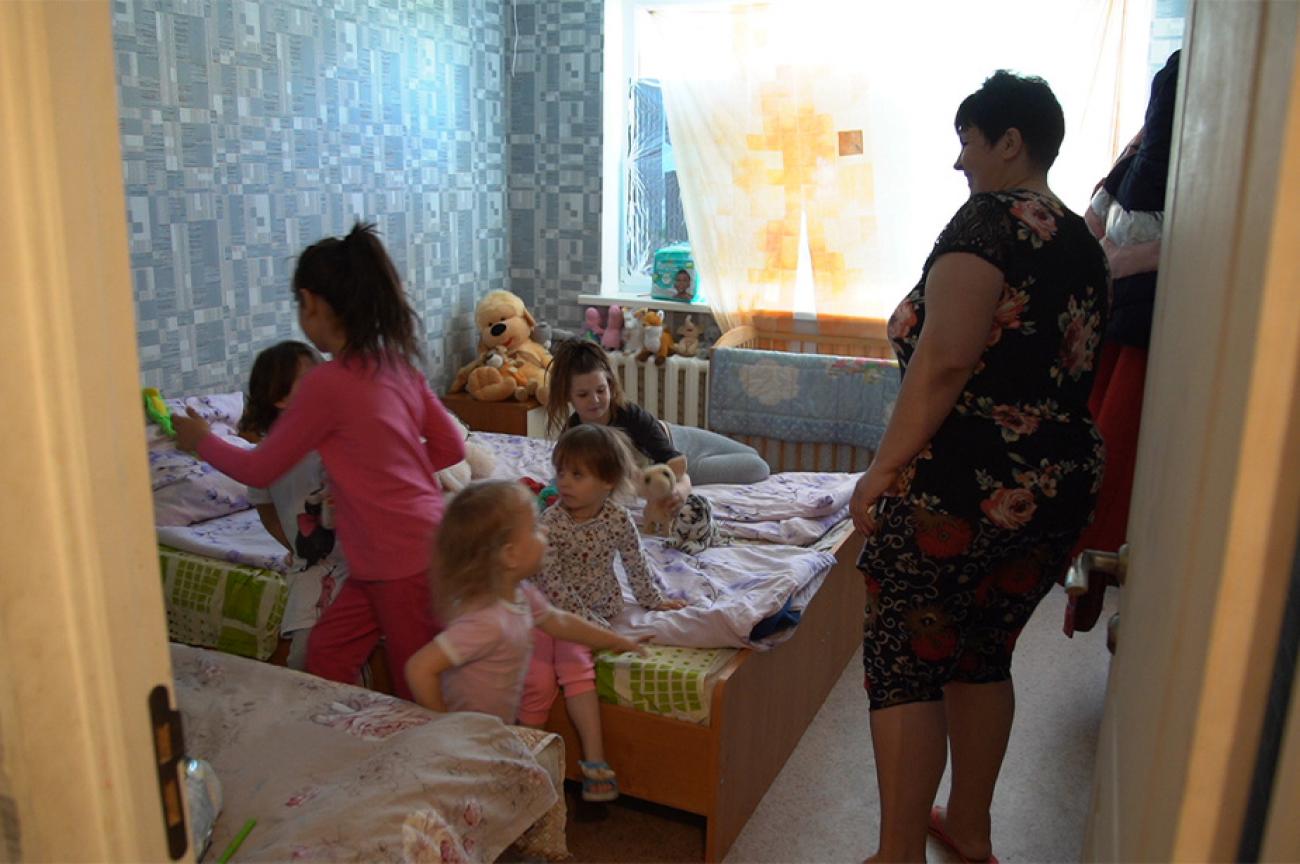Life support for Ukrainian families in Moldova

About 400 refugee children so far have benefited in receiving more than 6,500 items of essential school items, children table games, and books.
Ukrainian refugee children in Moldova can feel safer and more integrated in their communities due to a UN Human Rights project that supplies school items, books, toys and assistive devices for children and adults with disabilities.
The project was part of an effort in the framework of the One UN Joint Action "Cross-river support to human rights," a program with five other UN entities — UNODC, UNICEF, UNAIDS, UNDP, and IOM and funded by the Government of Sweden.
There are currently 2,420 refugee children from Ukraine enrolled in the 2022-2023 academic year in schools and kindergartens in Moldova, including those from the Transnistrian region, according to UN Human Rights Moldova. The Transnistrian region is located between the Nistru River and the Moldovan–Ukrainian border, a region in a protracted conflict.
According to Juliana Abramova, Programme Coordinator at UN Human Rights Moldova, the humanitarian aid was a result of speaking to refugees, predominantly women and mothers, about the supplies they needed for themselves and their families.
“They shared their horror stories with me and how they managed to escape from the war,” she said. “Their children needed some kind of entertainment, like toys that can be played with other children. They wanted to bring positivity to their lives, so they can cope with these memories of war.”
Abramova explained that the Office organized the first assessment missions to the Transnistrian region and were among the first to provide support to refugees. The Office responded to the immediate needs of refugees identified during the monitoring visits that were conducted by the team in Moldova at the border crossing points and shelters for refugees on both banks of the Nistru river.
“The humanitarian action happened just a few weeks after the war started, so this kind of support was highly appreciated and children were equipped with basic things for schooling from the beginning of their enrolment,” she said.
The humanitarian aid was disseminated among children who are staying in the refugee accommodation centers and those who are hosted by the community. About 400 refugee children so far have benefited in receiving more than 6,500 items of essential school items, children table games, and books. Also, table games and books were delivered to four refugee accommodation centers on both banks of the Nistru river.
The Office in Moldova also contributed to increasing the accessibility of services for refugees who have low mobility for both adults and children with disabilities and older persons, at the temporary placement centers for refugees and at triage centers in border crossing points. The items donated were accessible bio toilets, wheelchairs and walkers for adults and children.
From horror to hope
It was a cold and snowy day in March when Irina Bulat arrived in Moldova with her eight young children under the age of 18, including one with a disability. Bulat lived close to the Moldova border, in the village of Yaski of the Odessa region in Ukraine. They left early in the morning from their home when she heard gunshots getting closer to her village.
They immediately escaped in a car and then walked by foot the rest of the way to the border into Moldova. Bulat and her children weren’t left alone for too long when a woman approached her to help.
“We were well received here, and a lot of people immediately helped us,” she said.
Bulat was placed in a refugee accommodation center in Tiraspol and became a recipient of the school supplies for her children and toys. She was grateful for the items because they made things feel more normal in her temporary home. She is now settled and rents an apartment nearby.
“They have toys, stationary, notebooks, pencils and elastic bands,” she said. “They love the colored paper for art projects. They have everything they need.”






